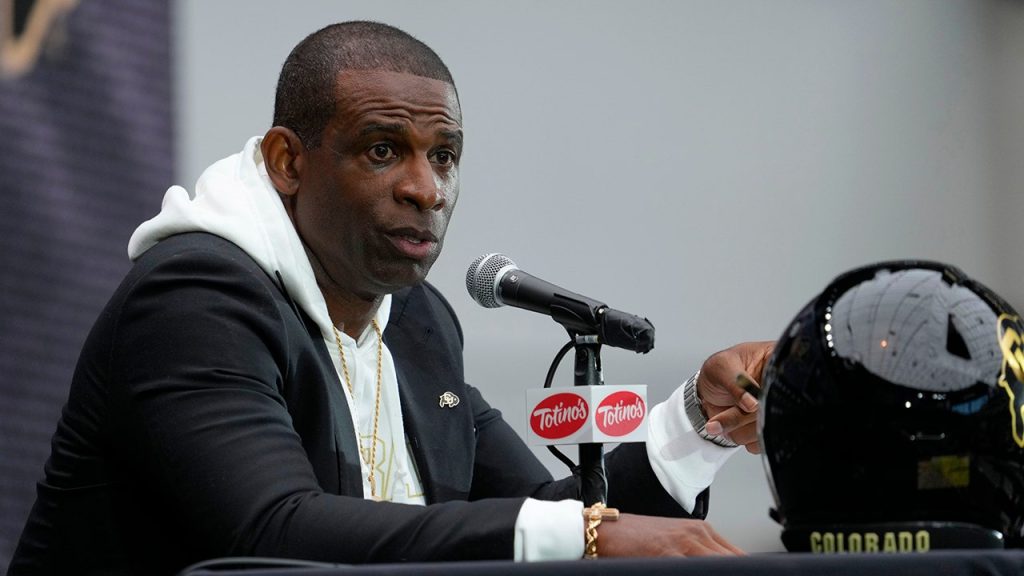Deion Sanders made headlines at a Colorado football news conference by addressing negative coverage from reporters. He stated that negative comments do not affect his effort, but they do reveal where reporters stand. Sanders emphasized that factors like his background as an African American head coach drive his motivation, not criticism from the media. The conference was notable as Denver Post columnist Sean Keeler was barred from asking questions due to previous personal attacks on the football program and Sanders. When asked if other reporters would face similar consequences for asking negative questions, Sanders responded by rejecting the notion of being negative and maintaining a positive approach.
Keeler’s absence from asking questions at the press conference highlighted the consequences of his past coverage. Colorado’s athletic department announced the temporary ban on Keeler’s questions due to his sustained attacks on the football program and Sanders. Specific derogatory references to Sanders, such as “Deposition Deion” and “Bruce Lee of B.S.,” were identified as issues that led to the disciplinary action. Despite the ban on questioning, Keeler’s access to football-related activities remains intact, and his colleagues from the newspaper are still allowed to ask questions. Sanders, who previously called out Keeler during another press conference, defended his decision to limit access to reporters deemed negative, emphasizing the importance of mutual respect.
Sanders’ history of denying reporters access predates his time as the Colorado head coach. During his tenure at Jackson State in 2021, a reporter was barred from covering the football program after publishing a story based on a court filing about a recruit facing charges. Sanders’ approach of limiting access to reporters who he feels have been unfair or negative towards him has continued in his current role. Despite this, Sanders expressed a desire to understand the reasons behind negative media coverage and engage in constructive dialogue to address any issues. He emphasized the importance of mutual understanding and communication to navigate challenging situations in the media.
The press conference highlighted Sanders’ approach to addressing negative coverage while maintaining a positive attitude. Keeler’s absence from asking questions underscored the repercussions of his past comments and references to Sanders. Sanders’ refusal to engage with reporters who are perceived as negative reflects his commitment to protecting the football program and his players. While facing criticism and adversity, Sanders remains focused on his role as a head coach and African American trailblazer in college football. He urged for understanding and collaboration with the media to foster better communication and address any underlying issues or misconceptions.
Sanders emphasized the importance of moving forward positively and seeking to understand the motivations behind negative media coverage. Despite facing challenges and criticism, he remains committed to leading his team and fostering a culture of respect and understanding. Sanders’ experiences with media scrutiny have shaped his approach to handling negative coverage and engaging with reporters. His actions at the press conference showcased his determination to maintain a positive perspective and address issues with transparency and dialogue. By highlighting the complexities of media relations and the challenges faced by high-profile figures like Sanders, the press conference shed light on the dynamics of sports journalism and public perception.


